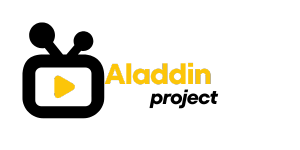The Supreme Court docket lately denied Elon Musk’s request to again out of a settlement settlement he had made with the Securities and Alternate Fee in 2018. This settlement was in response to allegations that Musk had made fraudulent statements about Tesla in a collection of tweets. One tweet particularly claimed that he had secured funding to take Tesla non-public at $420 per share, which led to vital fluctuations within the firm’s inventory value. To keep away from enforcement motion, Musk agreed to the settlement, which included a provision requiring an organization lawyer to approve his social media posts about Tesla. Regardless of agreeing to this provision, Musk has since challenged it as a violation of his First Modification rights.
Musk bought Twitter in 2022 and renamed it X. He has been vital of the Twitter sitter provision and has argued that it limits his freedom of speech. Nevertheless, the US District Court docket and the 2nd US Circuit Court docket of Appeals rejected Musk’s request to have the supply declared unenforceable. In an announcement, a three-judge appeals court docket panel said that there was no proof to assist Musk’s declare that the SEC had performed bad-faith investigations of his protected speech. Additionally they famous that Musk had the choice to litigate towards the SEC’s expenses or negotiate a distinct settlement however selected not to take action.
The Supreme Court docket’s rejection of Musk’s enchantment was made with out remark, and there have been no famous dissents. This choice signifies the courts’ assist for the settlement settlement and the Twitter sitter provision. Regardless of Musk’s objections, it seems that he will likely be required to proceed having his social media posts about Tesla authorised by an organization lawyer. This case raises questions in regards to the limitations of free speech on the subject of public figures like Musk and the obligations they’ve to make sure that their statements are correct and compliant with regulatory necessities.
Musk’s authorized battle with the SEC underscores the challenges that high-profile people face when navigating the intersection of social media, company governance, and regulatory compliance. By agreeing to the settlement in 2018, Musk sought to keep away from additional enforcement motion from the SEC. Nevertheless, his subsequent challenges to the Twitter sitter provision have led to a chronic authorized battle that has now been rejected by the very best court docket in america. This case serves as a reminder of the significance of transparency and accountability for public figures, particularly on the subject of speaking about publicly traded corporations like Tesla.
The implications of this Supreme Court docket choice lengthen past simply Elon Musk and Tesla. It units a precedent for the way courts will interpret settlement agreements between people and regulatory companies, notably on the subject of restrictions on speech. The courts’ assist for the Twitter sitter provision reaffirms the significance of accountability and oversight for people in positions of energy, even on the subject of their private statements on social media. As social media continues to play an more and more outstanding position in public discourse, instances like this one will proceed to form the authorized panorama surrounding free speech and company governance.


